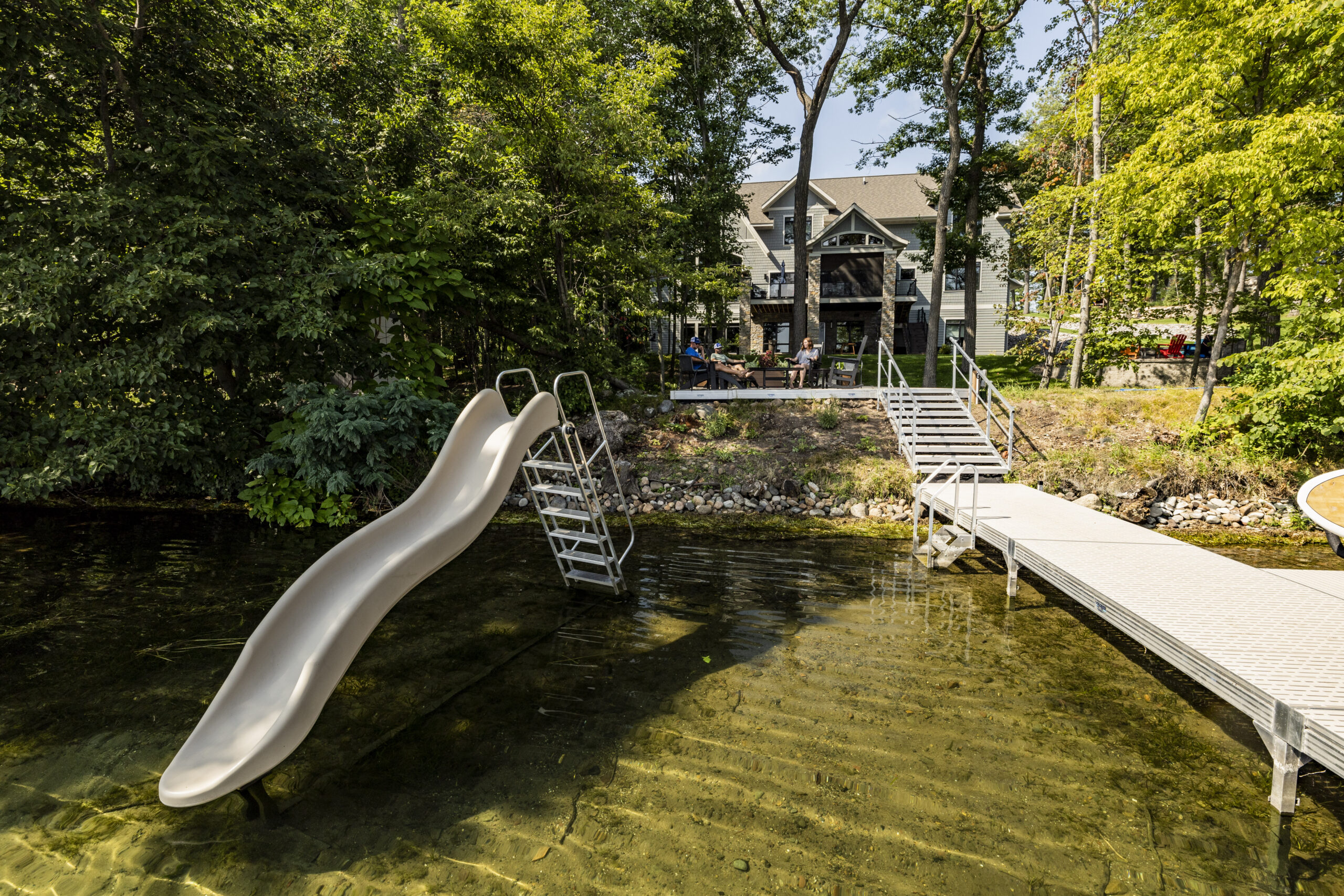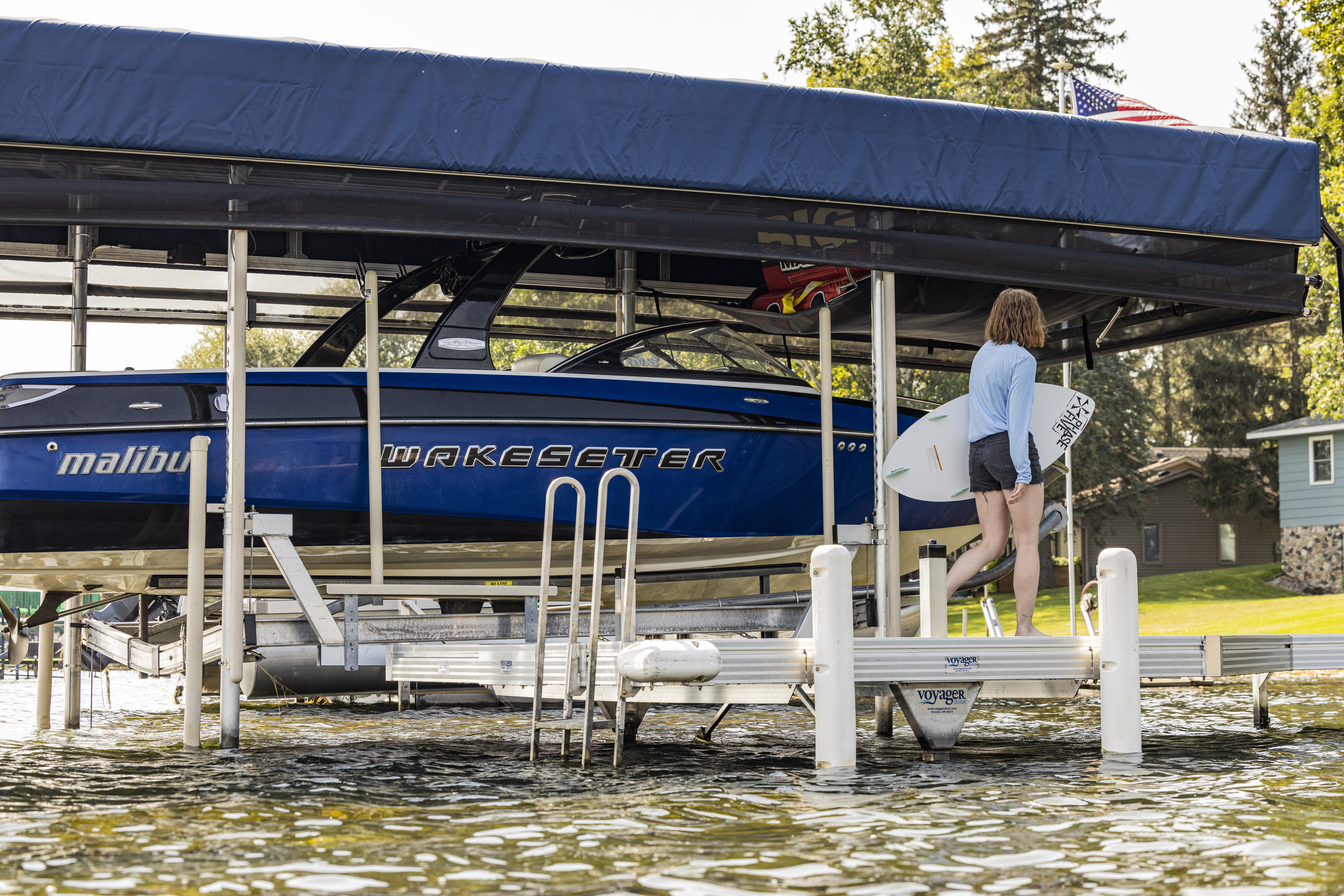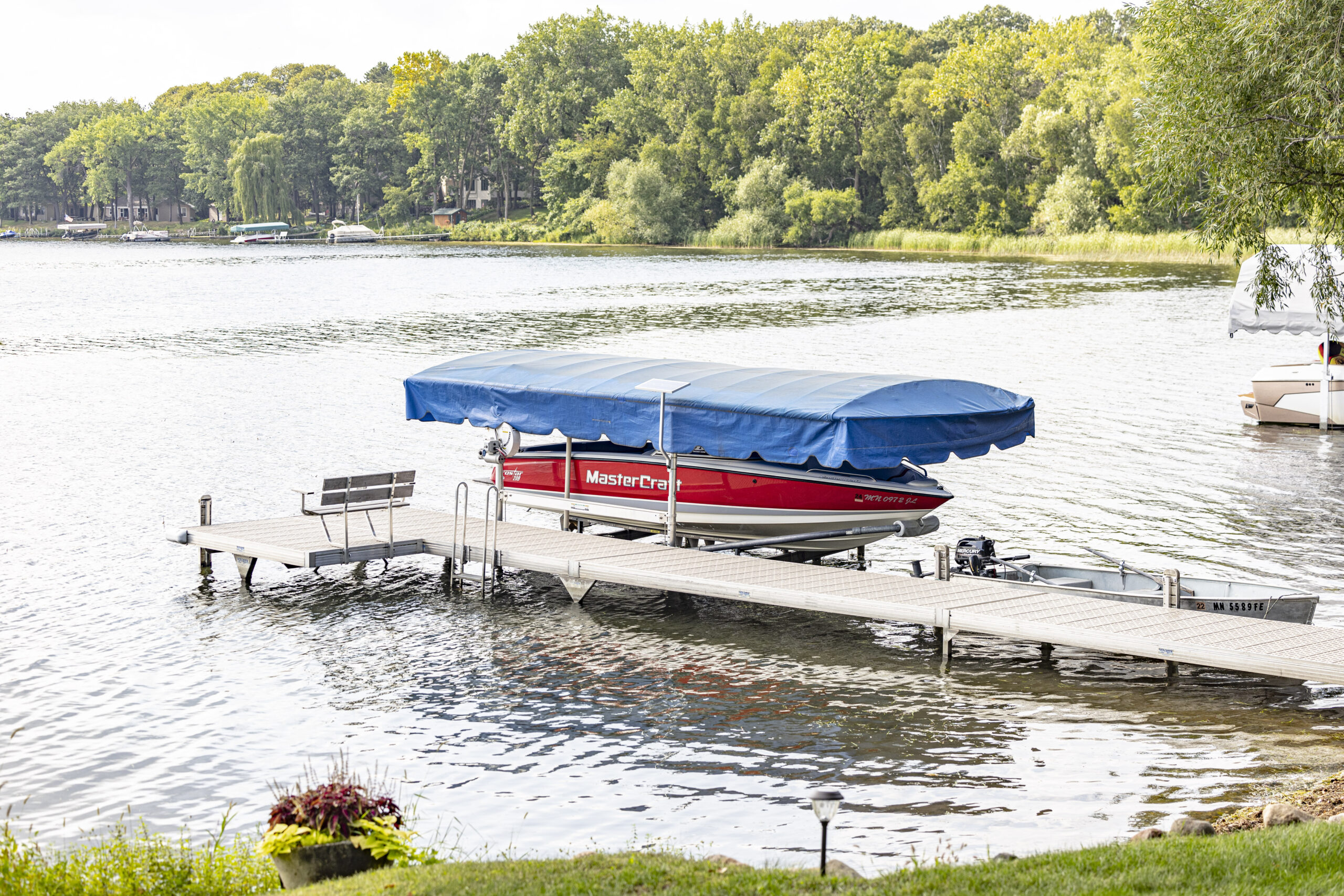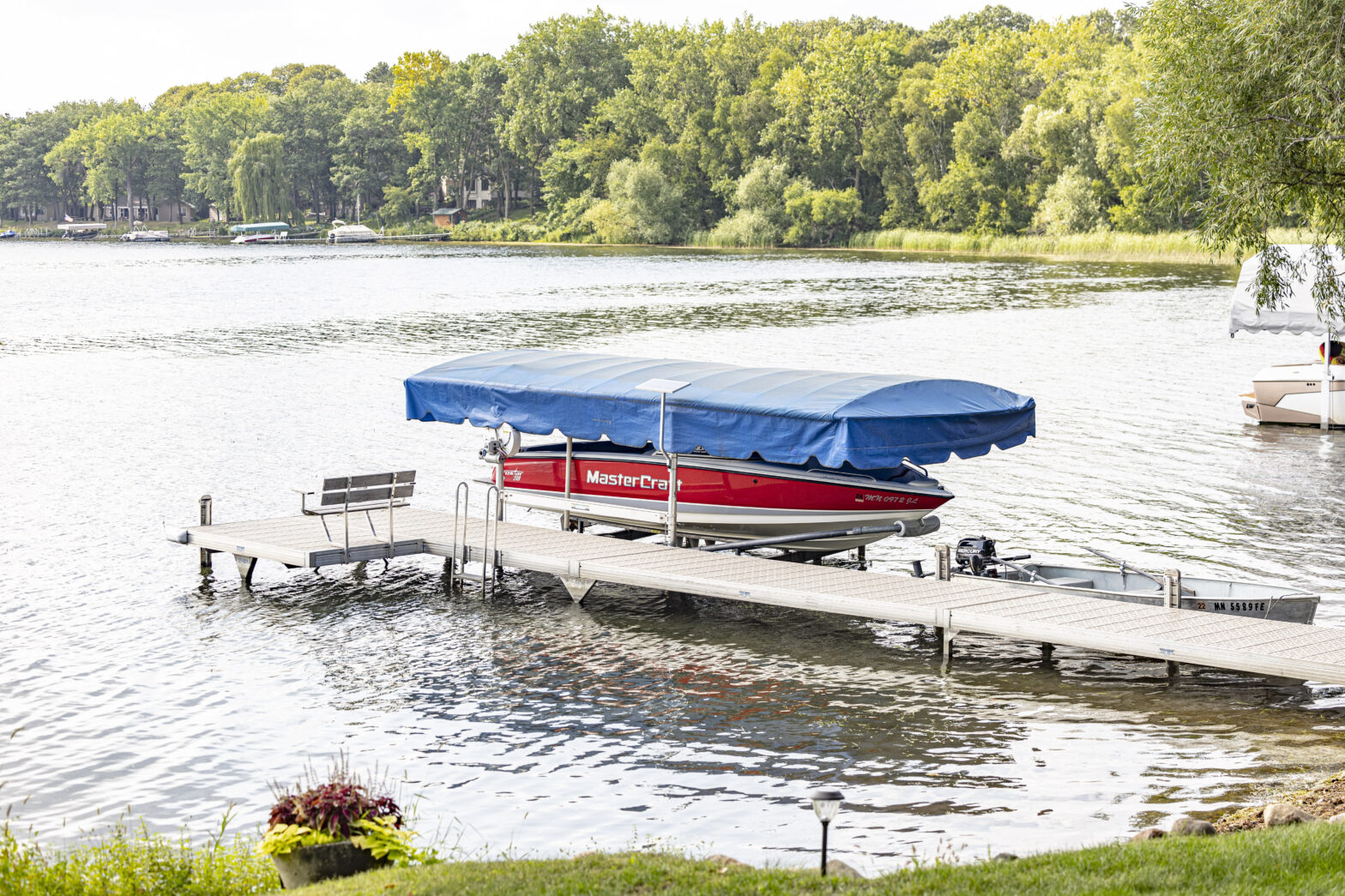Owning a waterfront property is a dream come true for many, but choosing the right dock is crucial for enjoying your waterfront. Understanding your waterfront, recreational activities and dock options can make a big difference in installing the right dock for your needs.
Water Depths
Before diving into dock options, it is essential to familiarize yourself with the specific characteristics of your lake. Lakes can vary significantly in size, depth, and water fluctuation levels. Some lakes may have consistent water levels year-round, while others experience seasonal changes. Also consider the lake bottom, whether sandy, rocky or muddy, as it impacts stability and installation. Research the conditions of your lake to make an informed decision on the type of dock that will best suit your property.

Shoreline
Knowing characteristics of your shoreline will help you in determining the best dock type for your waterfront property. Whether your shoreline features a steep slope, or a gradual grade is a factor to consider in dock selection as steep slopes require a stable design and gradual grades allow for more flexibility in choosing dock styles. Additionally, if your shoreline has rip rap, or protective rock lining, understand this may influence installation and dock configurations. The shoreline conditions also impact the need for a ramp and its size. A steep shoreline may require a longer ramp or articulating stairs for convenient access, while a gradual grade may allow for a shorter ramp.
Boat Accessibility

If boating is a significant part of your lake experience, understanding the water depth is important for ensuring your dock is accessible to your boat. Different boat types require varying depths for safe navigation. Measure the water depth at the intended dock location, keeping in mind any potential changes throughout the season.
Fixed vs Floating Docks
Water depth plays a crucial role in determining whether a standing, roll in or floating dock is more suitable for your lakefront property. Fixed docks are best for stable water conditions, where the water level remains relatively constant. In lakes with varying water levels, a floating dock is a more adaptable option. Floating docks rise and fall with the water providing an excellent solution during both high and low water fluctuations.

Professional Assessment
For a better understanding of the water depth and other shoreline factors, work with your local dock dealer. They can provide information to guide you in making decisions about the type and design of your dock to ensure it complements the unique conditions of your lakefront property.
